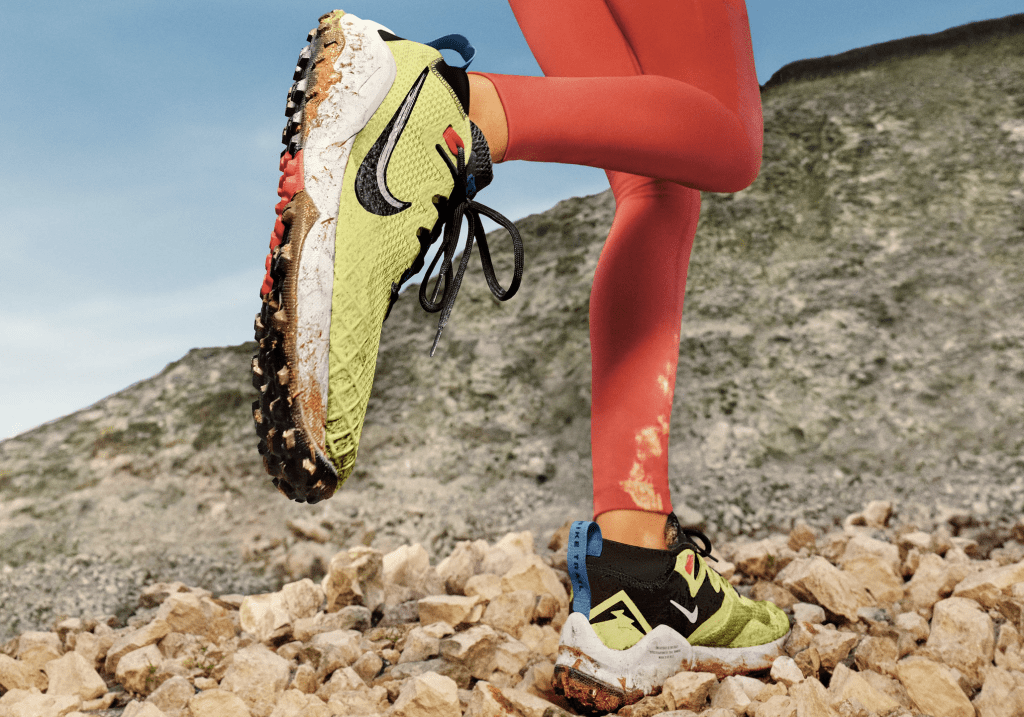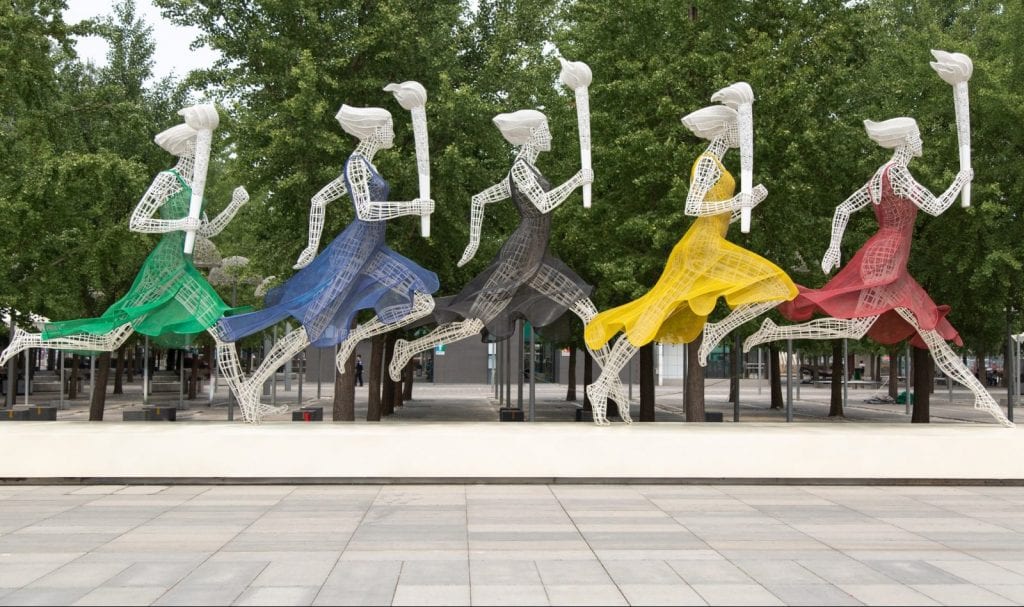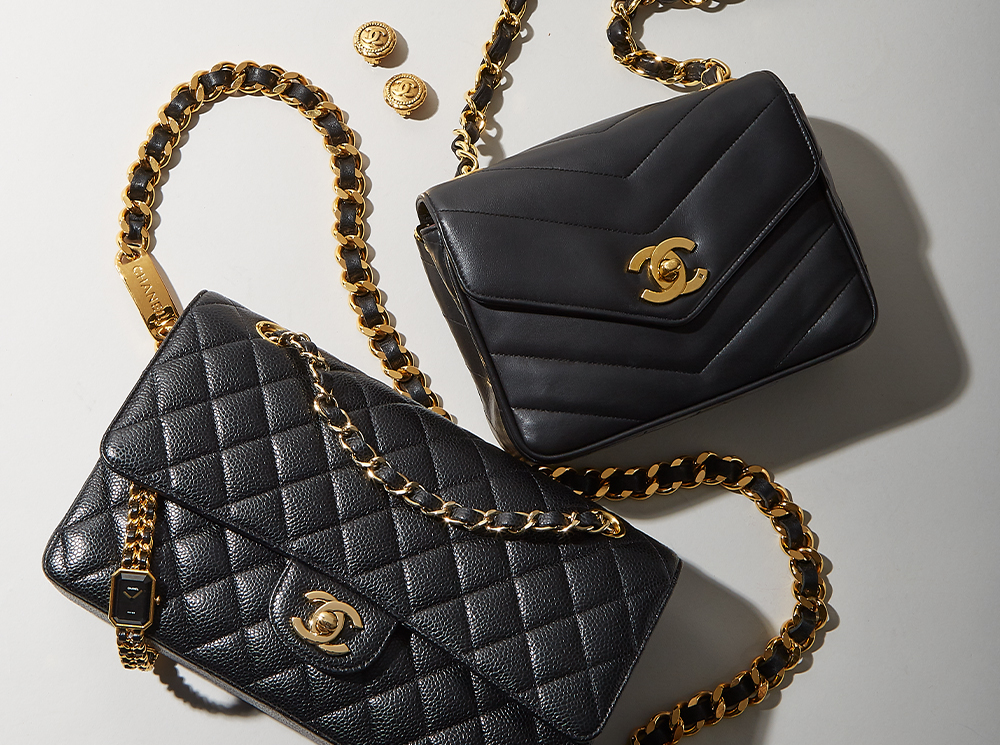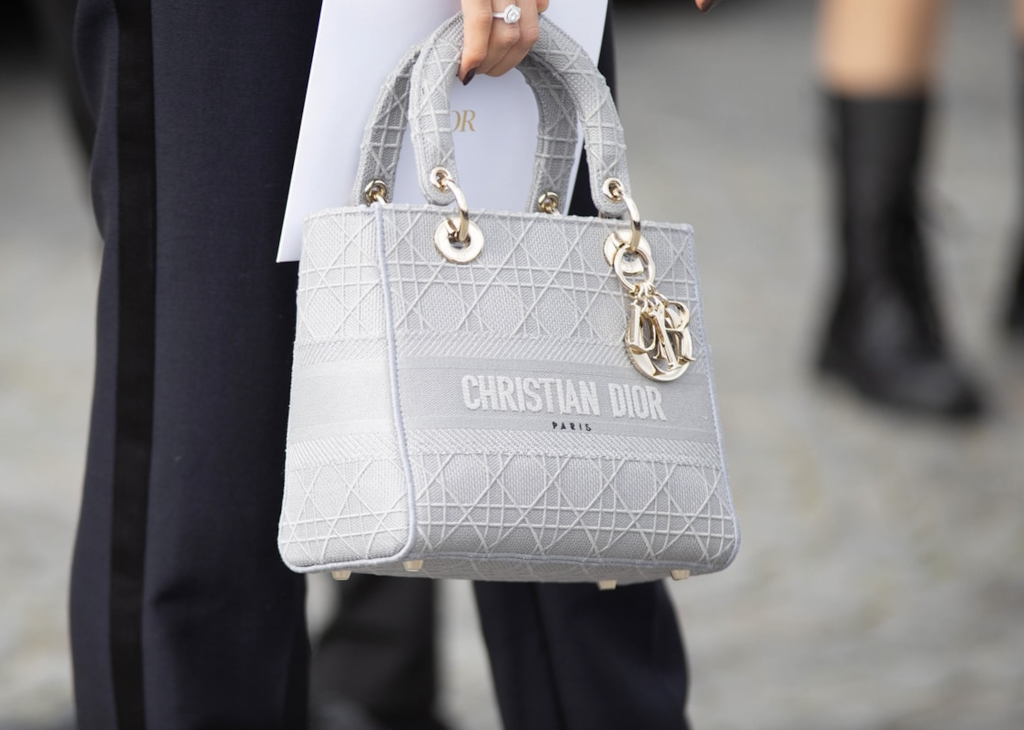Drip Creationz, the sneaker customizer that was slapped with a trademark infringement and dilution, and counterfeiting lawsuit by Nike this summer for allegedly selling modified sneakers, as well as outright fakes that bear Nike branding, admits that while it has sold customized Nike sneakers without authorization from Nike, it has not engaged in “any alleged bad acts,” despite the sportswear titan’s claims to the contrary. Three months after Nike filed suit against Customs by Ilene dba Drip Creationz, the sneaker customizer has denied the bulk of Nike’s claims in a newly-filed answer, and set out a number of affirmative defenses that shed light on arguments that it will dive into down the road.
In the answer that it filed with a California federal court last week, Drip Creationz makes a few admissions about the nature of its operations, stating, for instance, that it is in the business of “reselling authentic Nike Air Force 1 products purchased from Nike and its authorized distributors and sellers,” and that it also “sells shoes referred to as ‘D1.’” However, the majority of the filing consists of Drip Creationz denying many of the allegations that Nike made in its complaint, including that Drip Creationz “has taken systemic steps in an attempt to falsely associate its infringing ‘customizations’ with Nike,” including by using Nike trademarks “and/or confusingly similar marks on the infringing products and in its advertising.”
At the heart of Nike’s complaint is its argument that Drip Creationz is selling formerly authentic Nike sneakers, which it “materially alter[s] … in ways Nike has never approved or authorized,” as well as different products that it purports “to be genuine Nike products, but that are, in fact, counterfeits.” Beaverton, Oregon-based Nike alleges that the latter sneakers take the form of “knockoff Air Force 1-style shoes,” which Drip Creationz refers to as its “D1” sneakers, and which bear designs that allegedly infringe upon Nike’s registered trademarks for to its Air Force 1 shoes. In case that is not enough, Nike contends that the copycat footwear also has “crooked proportions, messy stitching, cheap details, and [is] taller than the real Air Force 1 shoes.”
While Drip Creationz acknowledges that it sells the “D1” sneakers that Nike references in its complaint, it neither admits nor denies the Swoosh’s claim the sneakers are counterfeit goods.
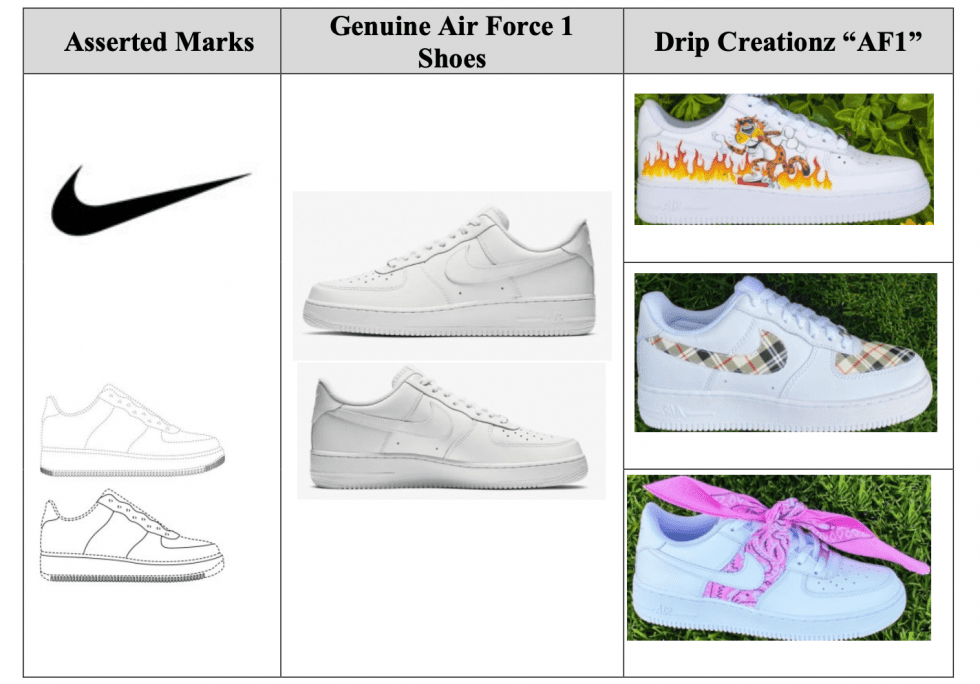
First Sale?
What Drip Creationz does deny is that the “direct approval of Nike is necessary or required for [the] lawful sale of its products,” presumably referring to the modified Nike sneakers. This claim ties into a number of the customizer’s thirteen affirmative defenses, including its argument that it is shielded from liability on the basis of fair use, as well as the first sale doctrine. Specifically, counsel for Drip Creationz asserts that the company’s sale of modified sneakers that it purchased from Nike and/or authorized Nike retailers “amount[s] to a resale by the first purchaser of the original product and is, thus, protected under the first sale doctrine and does not constitute trademark infringement or unfair competition.”
Undoubtedly a tool for many resellers, the first sale doctrine essentially states that once a trademark owner, such as Nike, releases its products into the market, the purchasers of those genuine trademark-bearing goods may resell them without facing trademark infringement liability. The (very obvious) problem here is that there are limitations to the protections provided by the first sale doctrine. For instance, the doctrine does not apply when a product that is being resold is “materially different” than the product that was sold by the trademark owner or its authorized dealers.
That exception is relevant here given that the Nike sneakers that Drip Creationz is selling have been modified to include what Nike says are “fake and unauthorized Nike Swoosh designs, as well as third party trademarks and protected images,” such as a pattern that mirrors Burberry’s trademark-protected check, Frito-Lay-owned Cheetos’ Chester Cheetah character, Travis Scott’s Astroworld graphic, and Chick-fil-A’s stylized word mark, along with an image from one of the fast food chain’s its “EAT MORE CHIKIN” campaigns. It would seem to me that such modifications likely take any viable first sale arguments off of the table, especially since at least some of these modifications make unauthorized use of others’ copyrights and trademarks beyond Nike.
In additional affirmative defenses, Drip Creationz takes issue with Nike’s trademark infringement claim by arguing that a critical element is missing, namely, “there is no likelihood of confusion between Nike’s asserted trademarks and the trademarks and/or usages made by Drip Creationz,” i.e., consumers seeing the modified sneakers would not be misled about the nature and/or source of the sneakers. More specifically, they would not believe that Nike was affiliated with the customized footwear in any way or that it had authorized their production by Drip Creationz.
Counsel for the customizer also asserts in the company’s defense that “one or more of the asserted marks of Nike is invalid based upon its failure to operate as a mark and/or a failure of Nike to make continuous use of its purported marks,” although, they do not assert which Nike marks that they are referring to. (If I had to guess, in claiming failure to function as a trademark, Drip Creationz is probably taking issue with Nike’s rights in the configuration of its Air Force One sneaker sans the Swoosh logo, which Nike has maintained at least one federal trademark registration for in the U.S. since June 2008.)
And still yet, Drip Creationz claims that “Nike has sustained no harm, irreparable or otherwise, due to the alleged actions of Drip Creationz.” This comes in contrast, of course, with Nike’s assertions that it is, in fact, suffering “considerable” damage from such unauthorized customizations and alleged counterfeit sneakers not only due to alleged differences in quality but also because “as more unauthorized ‘customizations’ get manufactured and sold, the harder it becomes for consumers to identify authorized collaborations and authentic products; eventually no one will know which products Nike has approved and which it has not.”
A Growing Number of Cases
The case comes as Nike has been initiating a growing number of trademark lawsuits against customizers ranging from Drip Creationz and John Geiger to MSCHF and former employee Jeffrey Waskowiak and his company KickRich LLC. As TFL has previously mentioned, the cases have been met with scorn from no shortage of Nike fans, who have accused the sneaker giant on social media of taking customizers ideas and mass producing them, while also benefitting from the culture-building that comes with exercises in customization and potential boosts to the demand for – and thus, the longevity of – silhouettes thanks to the appeal driven by particularly well-done customization projects.
In terms of what is driving the onslaught of customizer-specific litigation from Nike, a representative for the company said this summer that the company is not aiming to “limit the individual expression of artisans, many of whom are some of the brand’s biggest fans,” and noted that Nike “often collaborates with designers, artists and other creatives to innovate new products and experiences for our consumers with the Nike brand.” Instead, Nike says such litigation is the result of the fact that the brand “cannot allow unauthorized customizers to build a business using and leveraging some of our most iconic trademarks, undermining the value of Nike’s intellectual property,” as well as of its “brand, goodwill, and hard-earned reputation.” In other words, Nike says that it is simply policing its valuable trademark rights in order to maintain that value.
The Way Forward
In terms of what this string of customization-centric cases – which has seen Nike take on both established names like MSCHF, as well as also much smaller companies like KickRich – means for other customizers, it is almost certainly intended to send a message to the burgeoning modifications market that Nike will not sit back and watch its marks being used (and profited from) without its authorization.
While this goal seems straightforward enough from a trademark perspective, it is often lost on consumers, hence, the backlash that such suits cause on social media. With this in mind, it is worth considering what Nike could do differently, and what a potential alternative to litigation for truly customized Nike footwear (i.e., modifications to authentic Nike sneakers, as distinct from modifications made to sneakers that are infringing or counterfeit from the outset) could look like.
Ultimately, it might work in Nike’s favor to get involved by, for instance, launching a platform (maybe in conjunction with its Nike By You initiative) to partner with brand-approved customizers. Such a venture would only allow Nike to only control critical aspects of the customization market (and potentially the secondary market for such goods), including the quality of the sneakers, the terms of sale, pricing, etc. After all, it is many of these elements that are irking Nike (and its legal counsel) when it comes to unauthorized customizations.
The ability for the Swoosh to exercise control over these components would help Nike to mitigate the damages that it has elucidated in its various customization complaints, such as low quality materials or the additional of trademark or copyright infringing elements, and thus, keep its reputation and goodwill in check. At the same time, it would also enable Nike to share in the profits being amassed by customizers, which is, of course, no small part of what these lawsuits are about.
And still yet, such an approach would permit Nike to change its tune (to some extent) in favor of a more PR-friendly approach, which is an increasingly important issue for brands in a digitally-connected where brands are not immune to cancel culture and the risk of alienating consumers by setting the wrong tone by way of things like advertising but also when it comes to litigation is very real. Not only would a collaborative effort enable Nike to make money from customizers, it could help it to adopt a “Just Do It” mentality when it comes to customizers, something that it is largely lacking as of now.
The case is Nike, Inc. v. Customs By Ilene, Inc., 5:21-cv-01201 (C.D.Cal.)




